Confronting the Campus Crisis – 2024 update 📄🎬
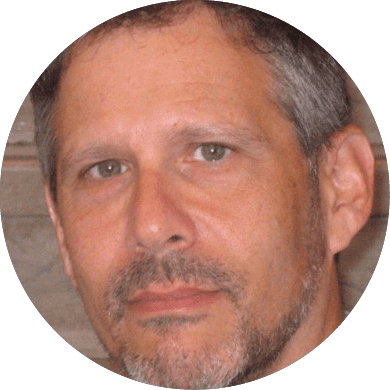
Yitzhak Santis is Senior Analyst and Writer for StandWithUs and was Chief Programs Officer for NGO Monitor. Before making Aliyah in 2011, he directed the Middle East Project for the San Francisco Jewish Community Relations Council and was a Regional Director with the ADL. He lives in the Galilee.
Jewish students at many universities are confronted by a rising tide of antisemitism. A recent survey of openly Jewish students found that over sixty-five percent of respondents felt unsafe on campus due to antisemitic incidents, while ten percent reported feeling physically unsafe. Half reported needing to hide their Jewish identities. The Israeli-Palestinian conflict was the backdrop to many of these incidents, as the campus has become a central stage for the most organized, motivated, and effective anti-Israel activist movement in recent memory. This activism is a major component of a “cognitive war to prepare [public opinion] for Israel’s destruction.”* Often this hyper anti-Israelism easily slides from “criticism of Israel” to explicit antisemitism. This presents an enormous challenge for Jewish educators in terms of how to prepare their college-bound students, intellectually and emotionally, for the onslaught they may experience.
Anti-Israel campus activism aims to erode Israel’s solid base of support at the highest levels of Western society. The predominant strategy is the global Boycott, Divestment, and Sanctions (BDS) movement, whose campus arm is Students for Justice in Palestine (SJP). BDS takes aim at Israel’s ability to engage with the world both through boycotts and divestment and the demonization campaign at its core. On campus, pro-BDS activism constitutes an immediate and persistent attack on the freedom of Jewish and pro-Israel students to express their views, assemble peaceably, and to participate freely and fully in student life. “The problem persists because BDS campaigns promote comprehensive hostility toward Israel; that encourages individual students and faculty to take matters into their own hands and carry out actions against others in their community.”*
The campus is targeted by BDS through SJP for two reasons. Firstly, it allows them to focus their propaganda efforts on people who are still developing their views of the world and are particularly susceptible to persuasion. Secondly, when SJP successfully pressures student governments to adopt anti-Israel measures based on anti-Israel propaganda, it taps into the symbolic power of universities to influence public opinion at large.
SJP’s “Divestment Handbook” reveals it relies heavily on outside political groups, including those actively promoting hate. SJP campus chapters are encouraged to reach out to American Muslims for Palestine (AMP) to trade strategies and get non-students to attend student government meetings about divestment.* AMP chairman Dr. Hatem Bazian, a co-founder of SJP, has repeatedly spread antisemitism on social media, while other AMP leaders and speakers have engaged in racism, homophobia, and genocide denial. Taher Herzallah, AMP’s Associate Director of Outreach & Grassroots Organizing, has said that “Israelis have to be bombed [because] Israel is an illegitimate creation.”
BDS leaders and activists do not hide their end game. Omar Barghouti, a BDS co-founder, said, “We oppose a Jewish state in any part of Palestine.” Others are equally blunt. Ahmed Moor said, “BDS does mean the end of the Jewish state.” David Letwin stated that “Zionists complain [BDS] demands spell the end of the ‘Jewish state.’ They are correct.” And Lara Kiswani told a UC Berkeley audience, “Bringing down Israel really will benefit everyone in the world, and everyone in society.”
Kiswani’s imagining that humanity’s salvation requires the destruction of the Jewish state, a not uncommon anti-Zionist theme, should be understood as “redemptive anti-Zionism.” It is an update of what renowned Holocaust historian Saul Friedländer identified as “redemptive antisemitism” in which Nazi ideology fantasized an eternal racial struggle between “Aryan” and “Jew” and concluded Germany’s salvation required nothing less than the complete destruction of “the Jews.” Similarly, for Kiswani and others, the road to a universal utopia is blocked by the Jewish state, requiring nothing less than its destruction.
Israel is a state, and no state is above criticism. But anti-Zionists frequently combine anti-Jewish tropes with their “criticisms.” The result is often antisemitic harassment, vandalism, and violence, such as the surge of random assaults on Jews in North America and Europe during the May 2021 conflict between Israel and Iranian-backed Hamas. *
In the early 20th century, the debate over Zionism was mostly a Jewish one about how to overcome growing antisemitism. Since then, three major historical events forever changed the Jewish people’s material conditions: the Holocaust, the founding of the State of Israel, and the flight or expulsion of 99% of Jews from Arab states. Today, with almost half of world Jewry living in Israel, the challenge for anti-Zionists is how not to be antisemitic.
Crucially, for most Jews, Israel and Zionism form an integral part of their Jewish identity. Israel is the birthplace of Jewish civilization, and Jews have maintained a constant presence there for over 3,400 years. Diaspora Jews endured over 1,900 years of oppression and violence and today’s world remains plagued by antisemitism. Accordingly, most Jews remain deeply connected to their ancestral homeland, support Zionism as a liberation movement, and see Israel as a “lifeboat” state.
The anti-Zionist demand to “bring down” Israel is a call for Jews to again become a vulnerable minority everywhere. Given the long history of persecution Jews faced across Europe and the Middle East leading up to the Holocaust, this would be a blatantly antisemitic outcome. Yet, this is precisely the cause that SJP promotes when they organize BDS campaigns and make scores of campuses more hostile for Jewish students. To shield themselves from criticism for such bigotry, anti-Israel activists often tokenize the extremist Jewish Voice for Peace (JVP) and others representing a tiny minority of the Jewish community.
These are just a few of the innumerable incidents of BDS fueling hate on campuses:
- Graffiti blaming Israel for the 9/11 terror attacks.
- Jewish members of student governments being harassed and pressured to resign or threatened with impeachment.
- Jewish students threatened with academic punishment by a TA who tweeted her intent to fail “Zionist students.”
- A student senate passing an anti-Israel divestment resolution while refusing to condemn a pro-BDS senator demanding a boycott of Jewish student organizations.
- A student posting on Facebook his “desire for zionists (sic) to die” after a student government passed a pro-BDS resolution.
- An unsuccessful attempt by SJP to pass a student government resolution redefining antisemitism, without the consent of Jewish students.
These episodes are not the only consequence of BDS campaigns on campus, usually organized by pro-BDS faculty, as academic freedom and the free exchange of ideas have also become a casualty. BDS’s academic boycott guidelines are a prime example of why the movement is so problematic. The guidelines have included calls for boycotts of:
- Study abroad programs in Israel.
- All cooperation projects involving, “Palestinians and/or other Arabs on one side and Israelis on the other” in which the Israeli side fails to fully capitulate to the three core demands of BDS in advance.
- Events co-sponsored not only by Israel and all its academic institutions, but also by organizations that “support” Israel.
- All events that take place in Israel, even if sponsored by international organizations.
This BDS campaign against academic freedom is not without opposition. It has elicited condemnations from the 47,000 member American Association of University Professors, 250-plus university and college presidents, seven other academic associations, and at least 38 Nobel Laureates.
The Role of Jewish Educators
Many Jewish high school students experience antisemitism and anti-Israel rhetoric on social media, causing them to feel isolated or targeted at school. In the classroom this may be fostered by peers and even teachers leaving young Jews susceptible to misinformation about Israel, making them feel marginalized, even hiding their Jewish identity.
David Bryfman, CEO of the Jewish Education Project, observes that, “Jewish educators must not merely teach about something called ‘Israel’ by transmitting facts. If they are to encourage students to care about and even love [Israel], educators must tap into learners’ feelings and lived experiences…therefore, the learner must be prioritized—must ‘matter’ even more than the content….” The idea is to engage both hearts and minds in a way that is personal. Ideally, this should begin at the middle school level or even earlier. In many cases, parents should be brought into this process as well.
The main responsibility of Israel educators is two-fold. First, inspiring Jews to explore how Israel connects to their Jewish identity. All Jews today are part of an amazing story—an ancient people who not only survived 1,900 years of oppression and violence but are miraculously still thriving in their ancestral homeland and finding countless ways to make the world a better place. All of this began in Israel over 3,000 years ago, and much of it continues to play out there today. Any Jewish student can find their own place in this story, as so many have done by traveling to Israel. When this isn’t possible, educators can take advantage of virtual tours and introduce themes that are most relevant to their students, from humanitarian aid around the world to social justice movements within Israel.
Simultaneously, as young Jews grow up it is crucial to develop their critical thinking skills, explore their questions, and cultivate their leadership abilities. This means not only delving into the difference between legitimate criticism of Israel and antisemitism, but also how to identify antisemitism. It also includes open discussion about Israeli-Palestinian and wider Arab-Israeli issues, including exposure to conflicting narratives. This can be done without compromising the basics. Supporting Israel as a vibrant, secure, Jewish and democratic state is a just cause. Exploring different perspectives does not require accepting misleading or false claims. However, the reality is that if we do not do this work with Jewish students, they may find themselves entirely unprepared when confronted with anti-Israel hatred and propaganda.
A holistic approach is crucial to overcome this challenge: inspiring Jewish youth to be proud of Israel and their identity while building up their confidence, critical thinking skills, and resilience. After all, resilience is at the core of who we are.

Yitzhak Santis is Senior Analyst and Writer for StandWithUs and was Chief Programs Officer for NGO Monitor. Before making Aliyah in 2011, he directed the Middle East Project for the San Francisco Jewish Community Relations Council and was a Regional Director with the ADL. He lives in the Galilee.
Reach 10,000 Jewish educational professionals. Advertise in the upcoming issue of Jewish Educational Leadership.
Do you want to write for Jewish Educational Leadership? See the Call for Papers for the upcoming issue.
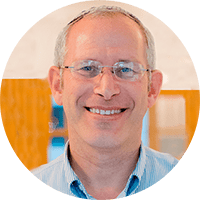
From The Editor: Winter 2024
When we published our issue on antisemitism two years ago, some thought that we were being alarmist. In retrospect, it seems like the antisemitic sentiments we were sensing were just the tip of the iceberg. The surge of Jew-hatred in the United States and abroad, from college campuses to workplaces to the streets of New York, Paris, London, Sydney, and so many more places, leaves us reeling with questions. How did we get to a place where the presidents of Harvard, Penn, and MIT speaking to a congressional committee could not say unequivocally that calling for the genocide of the Jews is considered harassment and violates campus rules?
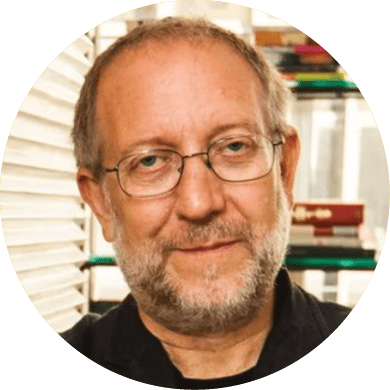
Understanding the New Antisemitism with Yossi Klein Halevi – 2024 Update 📄🎬
I think we’re experiencing a phenomenon that we can call massacre denial or massacre trivialization. And I don’t like Holocaust comparisons to Israel’s situation. But in one way I do believe that a Holocaust analogy is legitimate and that is in in how the historicity of October 7th is being treated and the uniqueness of October 7th. What makes October 7th unique is that it was not a pogrom, these were premeditated atrocities. And the purpose of the atrocities, was to instill terror. So what is happening to the memory of October 7th, the understanding of what October 7th was, is very similar to what Holocaust memory has been subjected to in large parts of the world.
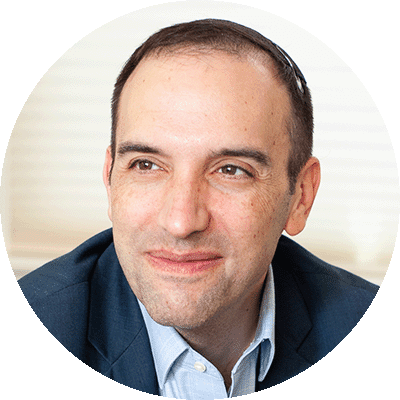
From Fear to Resilience – 2024 🎬
The whole world has changed. I feel like we’re at a historic moment for the Jewish people. This is one of the major, major dividers within the Jewish world today. Those who have never really known Jewish vulnerability and those who know it and feel a deep in their kishkes. And I think that divide has been kind of blown up right now. We’ve known through the statistics that antisemitism has been on the rise for the last many years. And I think Pittsburgh, Tree of Life, really changed in some ways the American Jewish condition. It kind of woke us up to the fact that it can happen here.
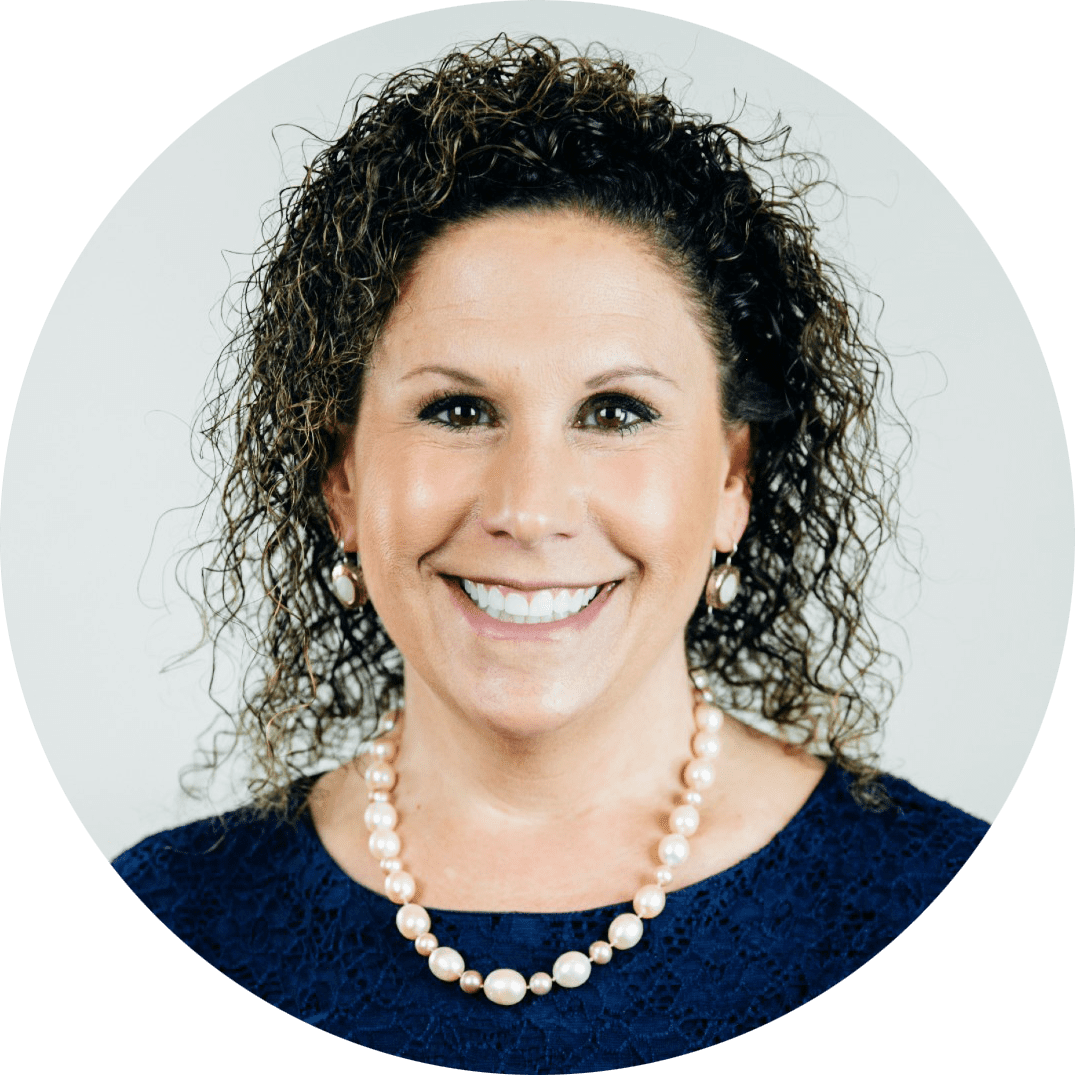
Building Jewish Strength – 2024 🎬
I think among the things that are concerning for me is that the people that I work with, and I’m in a Reform congregation, we’re a very large community with a lot of diversity within that community. I think that what is particularly concerning to me is that our people are so caught off guard and surprised. That all of the sudden in 2023, all of the sudden it’s as if there wasn’t antisemitism before October 7th. We either had our heads in the sand or we were just kind of in a position of not really acknowledging the extent to which antisemitism is still a part of the human existence. I won’t say the Jewish existence because I think antisemitism and anti- antisemitism is more than a Jewish concern.
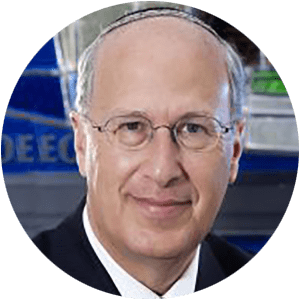
Antisemitism, Debating a Lie – 2024 🎬
The most concerning thing I find about the uptick in antisemitism is the lack of knowledge on the part of Jewish students and others about the real history of the situation. The kids don’t know how to have a cogent debate. They don’t have the knowledge. They don’t have the history to truly stand up and speak truth to lies. And that actually is the most disturbing thing. If there’s violence, it’s obviously extremely disturbing. But I’m not as worried about that as the long term issues, both on college campuses and now on high school campuses, where the lack of knowledge and the level of ignorance is so profound that I think we are in a strategically dangerous spot with our youth who don’t know.
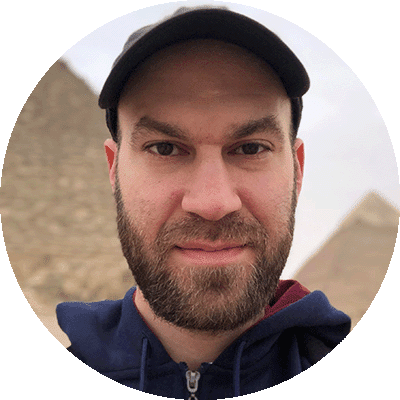
Seeing Antisemitism Clearly – 2024 🎬
The time when my thinking on antisemitism changed the most in the last five years was actually 2021, not now. In 2021, we had a similar situation on a smaller scale to what we have now, which is Israel and Hamas fighting and violence against Jews outside Israel. Hate crimes, attacks both at protests but also just on the street. And the thing that changed my thinking the most was not fighting in Israel and was not even those attacks. But it was how the reaction to those attacks from people who are most likely to stand up for minority groups who are being subjected to racism or prejudice was anything ranging from apathy to justifying or contextualizing the violence.
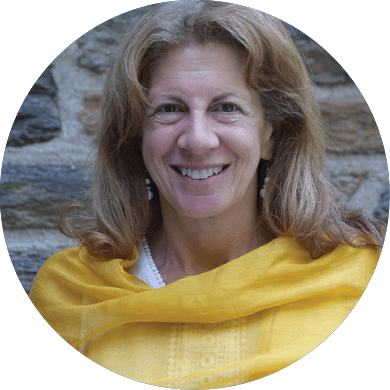
Antisemitism – So Close to Home – 2024 Update 📄🎬
I appreciate the opportunity, unfortunately, to revisit the question of antisemitism and the Jewish day school landscape. And it was almost like looking back at an innocent time to think about the Pittsburgh experience, which is what I wrote about, the proximity of my experience to the three congregations that were massacred in the Tree of Life building. At that time I definitely had it in the context of, well, I’m not surprised. I’m a child of Holocaust survivors. This is going to happen periodically. The big difference was the feeling that the world and the communities and the rational universe were very empathetic and sympathetic to what happened to the Jews in our community.
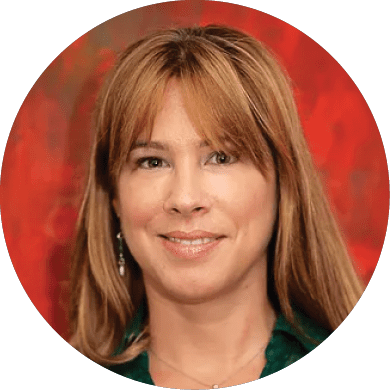
Antisemitism and Identity – 2024 Update 📄🎬
So the question was, in the last two years, has your thinking on antisemitism changed? And the answer is very straightforward. My thinking has not changed whatsoever. I knew that antisemitism is an issue, even though people around me have been minimizing and denying it and now it’s just out. It’s clear that there is bias even among people who are not necessarily antisemitic. It seems like there is a radicalization among younger people. I’m wondering to what extent education has to do with it. I got my Ph.D. here and I’ve seen the environment. There seems to be also a lot of misinformation at least on the school campuses or university campuses.







